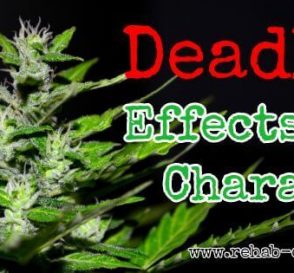When it comes to overcoming addiction, the success rate of drug rehab can be a critical factor in the decision-making process. But what determines the success rate of a drug rehab program?
In this post, we’ll explore the various factors that can affect the success of drug rehab and how to increase your chances of recovery.
5 Factors That Affect Drug Rehab Success Rates
1. Personalized Treatment Plans
One of the most important factors in the success of drug rehab is the personalized treatment plan. A treatment plan that is tailored to an individual’s specific needs and challenges is more likely to be effective in achieving long-term recovery.
Effective treatment plans may include a combination of therapies such as cognitive-behavioral therapy, individual counseling, and group therapy. They may also incorporate holistic approaches like meditation, yoga, and nutrition counseling.
2. Length of Treatment
The length of treatment is another important factor in the success of drug rehab. Studies have shown that longer treatment programs, such as those lasting 90 days or more, tend to have higher success rates.
This is because addiction is a complex issue that requires time to address the underlying causes and develop healthy coping mechanisms.
However, the ideal length of treatment will vary depending on the individual and their specific needs. It’s important to work with a treatment provider to determine the appropriate length of treatment for your unique situation.
3. Follow-Up Care
After completing a drug rehab program, it’s important to have a plan in place for follow-up care. This can include ongoing therapy, support groups, and other resources to help maintain sobriety and prevent relapse.
Studies have shown that those who participate in follow-up care have a higher rate of long-term recovery. It’s important to find support and resources that work for you and make them a regular part of your recovery journey.
4. Overall Health
Overall health can also play a role in the success of drug rehab. Those with underlying physical or mental health conditions may face additional challenges in recovery and may require specialized treatment.
It’s important to address any underlying health issues as part of the treatment process to increase the chances of success.
5. Personal Motivation
Personal motivation is another key factor in the success of drug rehab. Those who are committed to recovery and are willing to put in the work to overcome addiction are more likely to achieve long-term sobriety.
It’s important to find what motivates you to stay sober and to use that motivation to stay on track with your recovery goals. Whether it’s a desire to be there for your family, to improve your health, or to achieve other personal goals, having a strong sense of purpose can be a powerful tool in overcoming addiction.
Final Thoughts
The success rate of drug rehab can be affected by a variety of factors, including personalized treatment plans, the length of treatment, follow-up care, overall health, and personal motivation.
By addressing these factors and working with a treatment provider to develop a plan that is tailored to your specific needs, you can increase your chances of success in overcoming addiction and achieving long-term recovery.
I hope this blog post is helpful and provides some valuable insights into the factors that can affect the success rate of drug rehab. If you have any other questions or need further assistance, don’t hesitate to ask.





